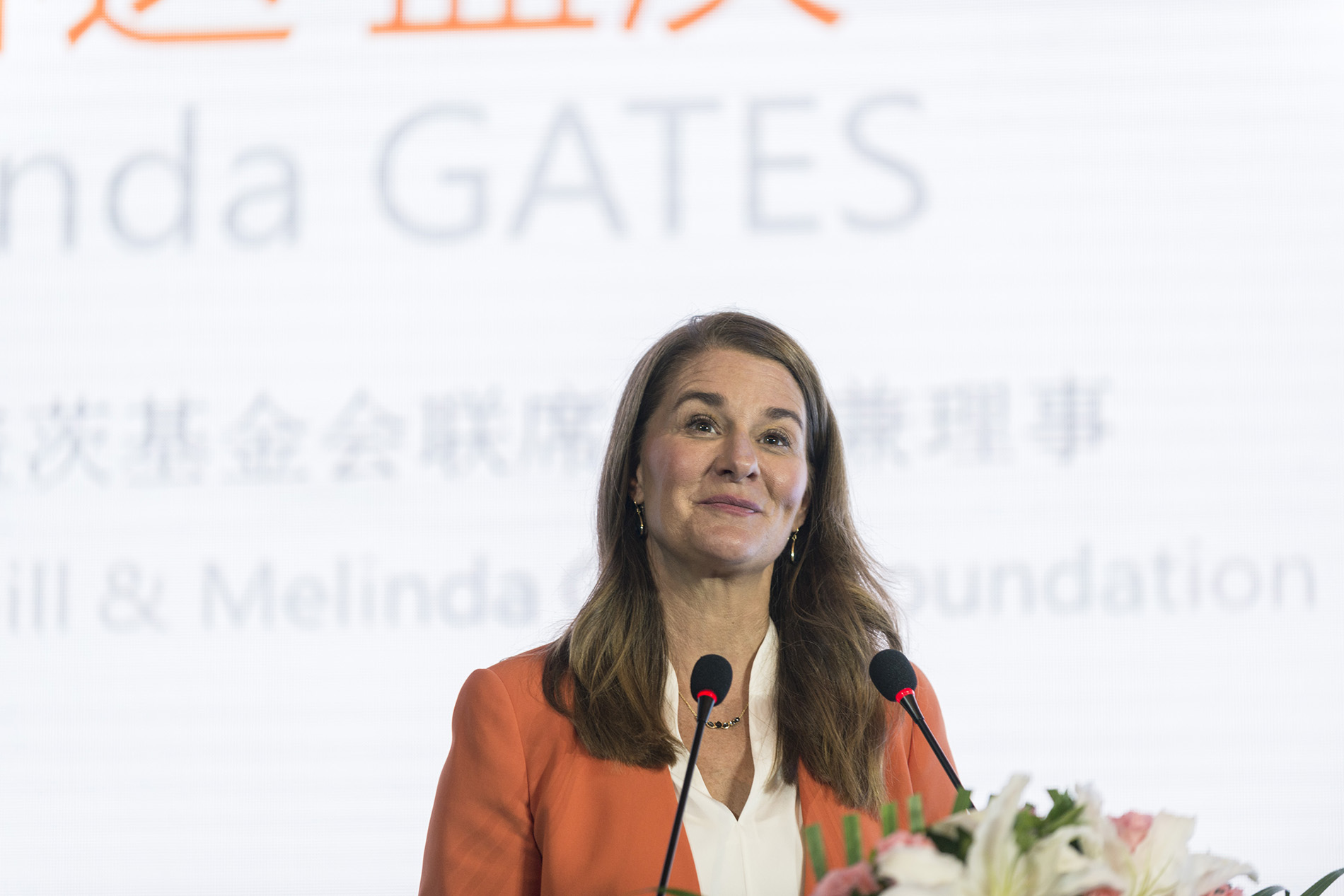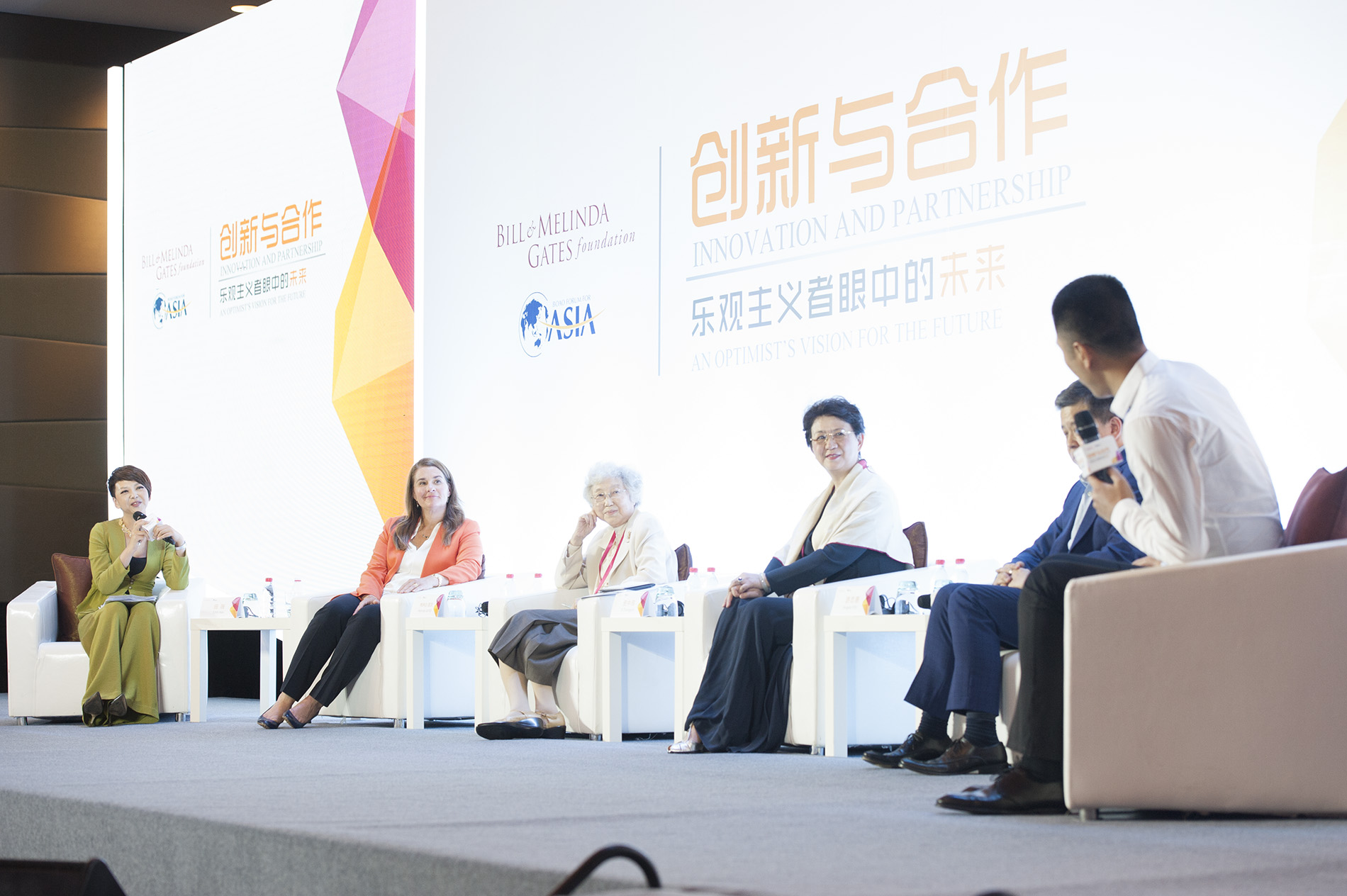Innovation and Partnership: An Optimist's Vision for the Future
It is a pleasure to spend the evening with all of you.
I am very happy to be back in China. My last trip was in 2008, when Bill and I came for the spectacular Beijing Olympics. On that visit, we also spent time learning about the work our foundation's partners do.
One image from that trip, from a day we spent in Hainan Province, stands out to me: the huge handful of pills a woman who suffered from tuberculosis had to take to control her disease. She told us she took 13 pills every day.
We thought, There has got to be a better way to manage TB, and we bet China is going to invent that better way.

Bill and I started our foundation because we believe that all lives have equal value.
Our parents raised us both to try to help people in our community that weren't as lucky as we were. We both worked at Microsoft because we believed technology could improve life for billions of people.
After we got married, we started getting interested in one particular inequity we saw - the fact that a child born in Africa was nine times more likely to die than a child born in the United States.
We believed that if the same kind of innovation we had been using to solve problems with technology were directed at saving and improving lives in poor countries, that gap would close quickly.
So we created the Gates Foundation to be part of a global movement toward equity.
And in the past generation, through the hard work of millions of individuals and thousands of organizations, the world has made stunning progress.
Since 1990, the number of children who die before they turn 5 has been cut by more than half.
AIDS used to be a death sentence. Now it is a treatable disease. As a result, the number of people dying from AIDS has also been cut in half - and that's just since 2005.
There's one more number that has gone down by half: the number of people living in poverty. China knows this statistic well because more than three-quarters of the decline in global poverty happened here in China. China lifted more than 700 million people out of poverty in a single generation.
And now it is committed to eliminating extreme poverty completely. There are still 40 million Chinese living in extreme poverty, and the government has set a goal of bringing that number down to 0 by 2020.
China's progress is a powerful example of what's possible.

China is on track to eliminate malaria entirely by 2020. To put that in perspective, the year I was born, 60 million Chinese suffered from malaria. One of the most important reasons for this progress is a new and more effective malaria treatment that was made possible by the Chinese Nobel Prize winning scientist Tu Youyou.
Another example of innovation: China has developed one of world's largest and most sophisticated digital payment ecosystems, which is unlocking economic opportunities for hundreds of millions of people.
China is not only transforming lives for its own people; it's also offering its expertise to the rest of the world.
China is now the second largest funder of Research & Development in the world. Chinese discoveries are already saving lives. For example, China has delivered 400 million doses of the vaccine for Japanese Encephalitis to people outside of China.
And there is more to come. The Chinese FDA is currently considering reforms that will make it easier for Chinese innovations to help people in other developing countries.
We are proud to partner with China in some of those R&D efforts, including a program called Grand Challenges and a new Global Health Drug Discovery Institute we're funding along with the Beijing Municipal Government and Tsinghua University.
Of course, it's not just technology that China offers. I have enjoyed working together with Madame Peng Liyuan, who, as you know, is a leading advocate for HIV/AIDS, tuberculosis, and tobacco control. And I have had the pleasure of meeting many Chinese philanthropists who are using their personal wealth to trigger changes they're passionate about. It is exciting to see China becoming a global leader in so many different areas.
I got into philanthropy because I believed the world would be better if innovators focused on the biggest problems facing the most people. And that is what China has been doing - innovating to improve the lives of billions.
If you need one more piece of evidence, consider how far China has come on TB. That woman suffering from TB whom I met during my last trip to China needed 13 pills every day. Now, based on work led by the National Health and Family Planning Commission, she and other TB patients only have to take 3 or 4. This is huge progress; imagine what could be achieved if we could replicate this success in other countries.
So this is a place where it's easy to be optimistic. It's not just that progress against disease and against poverty is possible. Progress is happening here in China. And it's happening fast.
It is an honor to share the stage with so many distinguished speakers, all of whom have something important in common: they are all optimists about the future. I am looking forward to hearing them explain where their optimism comes from.


